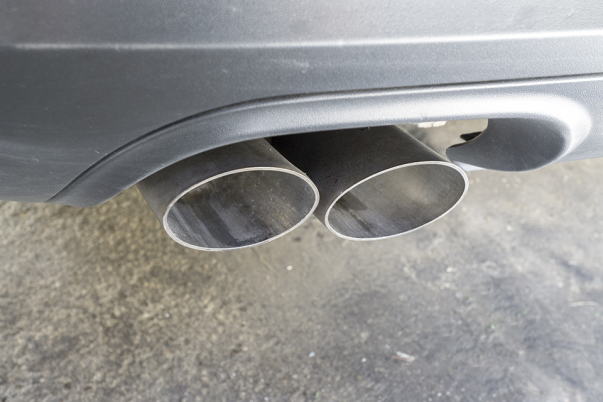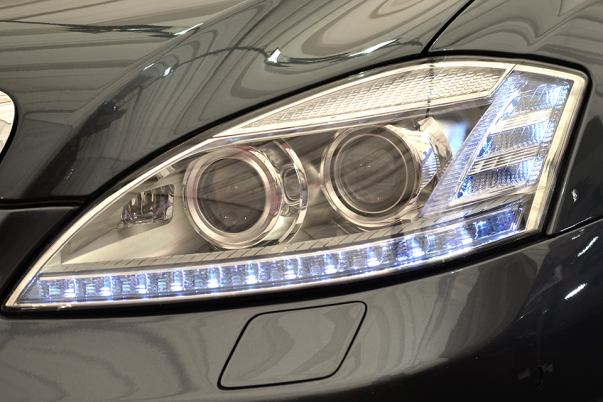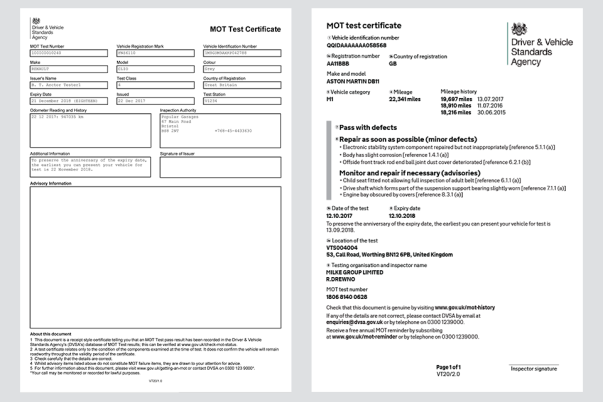Monthly Archives: May 2018
The MOT Test is changing – but how will it affect your vehicle?
The MOT test is set to change on 20 May 2018, with new defect types, stricter rules for diesel car emissions, and some vehicles over 40 years old becoming exempt.
Trust My Garage has previously covered what areas of your vehicle are looked at during an MOT, but the upcoming changes will affect cars, vans, motorcycles and other light passenger vehicles – so what do you need to know?
The .Gov website specifies that there are 5 main changes that motorists need to know about. Here’s the breakdown of each change:
- Defects will be categorised differently
Defects found during the MOT will be categorised as either:
- dangerous
- major
- minor
The category the MOT tester gives each item will depend on the type of problem and how serious it is.
MOT testers will still give advice about items you need to monitor. These are known as ‘advisories’.
- Stricter rules for diesel car emissions
There will be stricter limits for emissions from diesel cars with a diesel particulate filter (DPF).
A DPF captures and stores exhaust soot to reduce emissions from diesel cars. Your vehicle will get a major fault if the MOT tester:
- can see smoke of any colour coming from the exhaust
- finds evidence that the DPF has been tampered with

- Some new things will be included in the MOT
They include checking:
- if tyres are obviously underinflated
- if the brake fluid has been contaminated
- for fluid leaks posing an environmental risk
- brake pad warning lights and if brake pads or discs are missing
- reversing lights on vehicles first used from 1 September 2009
- headlight washers on vehicles first used from 1 September 2009 (if they have them)
- daytime running lights on vehicles first used from 1 March 2018 (most of these vehicles will have their first MOT in 2021 when they’re 3 years old)

There will be other smaller changes to how some items are checked. Your MOT centre will be able to tell you about these.
- The MOT certificate will change
The design of the MOT certificate will change. It will list any defects under the new categories, so they’re clear and easy to understand. The service to check the MOT history of a vehicle will be updated to reflect the changes.

The old MOT certificate (left) and the updated version as of May 20th (right)
- Some vehicles over 40 years old won’t need an MOT
Cars, vans, motorcycles and other light passenger vehicles won’t need to have an MOT if they’re over 40 years old and have not been substantially changed.
At the moment, only vehicles first built before 1960 are exempt from needing an MOT. When the rules change on 20 May 2018, vehicles won’t need an MOT from the 40th anniversary of when they were registered. You can check the date the vehicle was registered online.

You won’t have to apply to stop getting an MOT for your vehicle. However, each time you tax your historic vehicle (even if you don’t pay a fee), you’ll have to declare it meets the rules for not needing an MOT.
More information
The maximum fees MOT centres can charge won’t change, and you can get a free MOT reminder by text message or email a month before your MOT is due via the .Gov website.
All MOT station have been issued with a special notice and will be aware of the upcoming changes to the MOT test. Most Trust My Garage members conduct MOTs, and will adhere to the new regulations when they come into force on Sunday 20th May. If you have further questions you can visit the .Gov website, call the DVSA MOT Hub on 0300 123 9000 or visit your local Trust My Garage member for face-to-face updates.

If you’re looking to give your motor some TLC, you can take your vehicle to your nearest Trust My Garage member business. Whether it’s for an MOT, check-up, service or repair, the Chartered Trading Standards Institute (CTSI) approved code of conduct that our members use mean that you and you motor both get the best possible service. For more information you can visit www.TrustMyGarage.co.uk – and be sure to check out the Trust My Garage Facebook and Twitter pages too!

